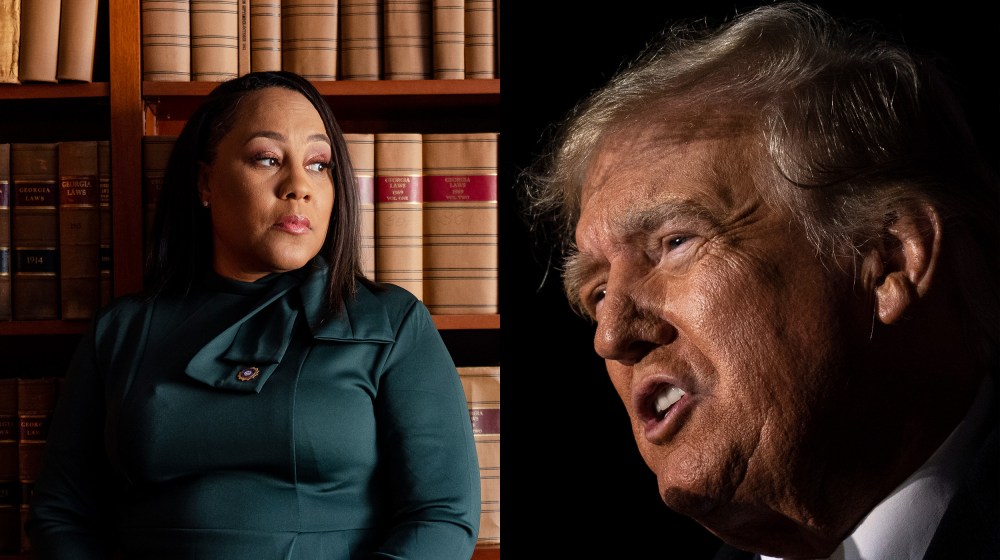On Monday, a state judge in Fulton County, Georgia, dissolved the special grand jury that has spent the last eight months investigating possible criminal interference in the 2020 presidential election in that state. This is the first in a series of dominoes that need to fall in order for former President Donald Trump to see the inside of a Georgia courtroom. We don’t know if they will all end up on the floor, but we do know what must happen next.
We don’t know if they will all end up on the floor, but we do know what must happen next.
State criminal cases in Georgia don’t typically involve the type of lengthy investigation common in federal cases. When they do, Georgia law allows prosecutors to use a “special grand jury” for investigative purposes, issuing subpoenas for documents and testimony. That was the nature of the grand jury that was dissolved on Monday. In two weeks, on Jan. 24, a judge will hold a hearing to determine whether the grand jury’s report should be made public, as they requested.
While a special grand jury is empowered to investigate, it cannot indict. For Fulton County District Attorney Fani Willis to obtain an indictment, she must present evidence to her regular criminal grand jury.
She does not have to wait for the report to be released, however. Willis can seek a grand jury indictment now. The DA’s office acts as an adviser to the special grand jury, so its prosecutors are already familiar with the evidence in the report; and likely participated in drafting it.
Willis’ regular criminal grand jury is in session on Tuesdays. The date of the hearing, Jan. 24, also falls on a Tuesday, so it’s possible she could go to the grand jury immediately afterward and begin presenting evidence. She could also present evidence to a grand jury in advance of the hearing, sealing any indictments until the court date. But while she’s not required to wait, given that the court is considering a related matter, it seems likely that she will.

Americans can wait a little longer. Since Jan. 6, 2021, if not earlier, we have wondered whether our criminal justice system is capable of holding Trump accountable for his misconduct. Former prosecutors who have commented on DOJ’s investigation have stressed the importance of a thorough investigation before charges are brought, because the consequences of indicting but not convicting a former president would be serious — perhaps worse than not bringing charges at all.
Remember, the Georgia investigation started with a phone call Trump made to Georgia’s secretary of state, Brad Raffensperger, in the wake of Trump’s electoral loss in Georgia. Raffensperger taped the call, so we have been able to hear Trump trying to persuade him to “find” the 11,780 votes that would put him one vote ahead of Biden.
In the call, Raffensperger refuted every allegation of fraud Trump raised. An apparently frustrated Trump resorted to bullying, even suggesting Raffenspergfer could be prosecuted if he didn’t go along with Trump’s demands. When that didn’t work, he resorted to begging: “I only need 11,000 votes. Fellas, I need 11,000 votes. Give me a break.”
Remember, the Georgia investigation started with a phone call Trump made to Georgia’s secretary of state, Brad Raffensperger.
At this point, the investigation appears to have expanded beyond the call. Willis issued target letters to at least 18 individuals, including Republican officials in Georgia and Trump allies who were not directly involved in the call. She fought public battles to enforce her subpoenas, obtaining testimony even from people who did not fully cooperate with the Jan. 6 committee, like Rep. Mark Meadows. She could also be considering charges related to a plan to create a fake slate of electors for Georgia.













